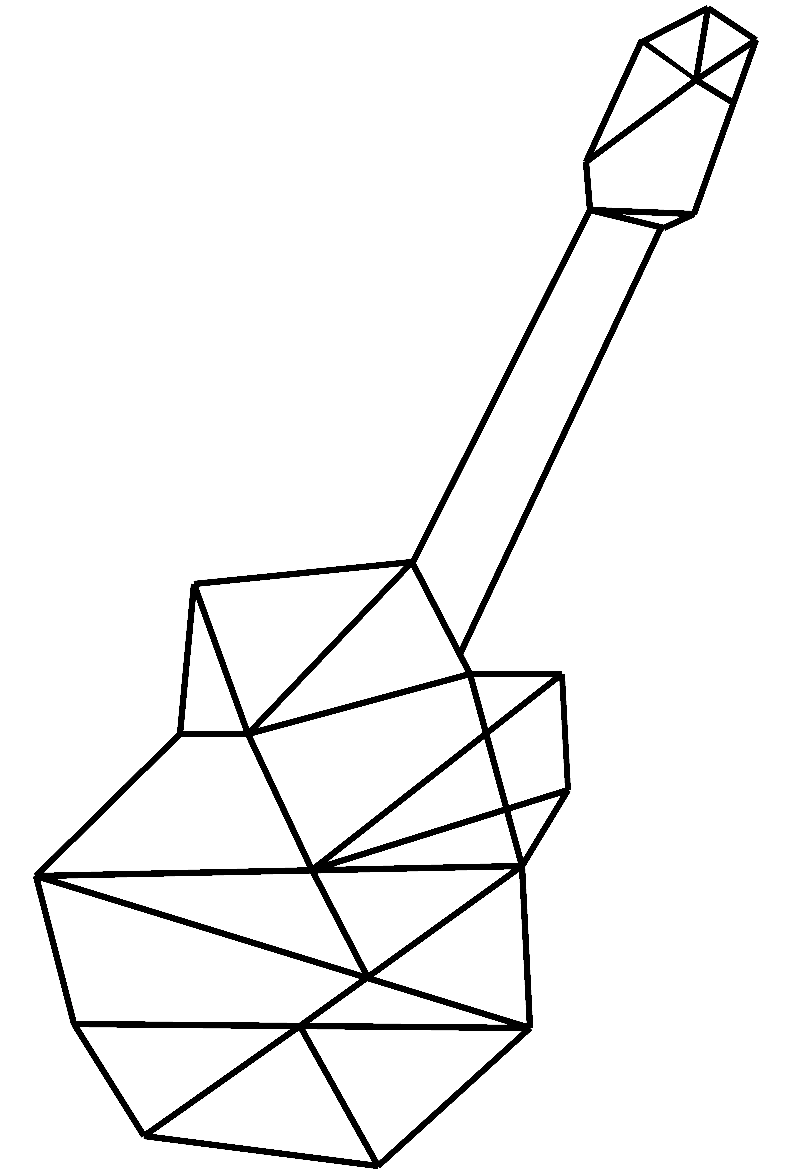“Perhaps we’ll never know how far the path can go, how much a human being can truly achieve, until we realize that the ultimate reward is not a gold medal but the path itself.”
George Leonard
So you’ve hit the wall. When you first picked up the guitar, you spent considerable time learning the basics. In the early weeks and months you develop these and grow more comfortable with your instrument, you move on to songs and various techniques and styles of playing. Your abilities seem to grow in leaps and bounds for a good long while as things get exponentially easier and easier. You’re really doing it! You’re actually playing! You’re becoming a guitarist!
And then, seemingly out of nowhere, you hit it. The wall. Suddenly, no matter how much you practice, it ceases to yield the desired results, or any results at all. Progress comes to a grinding halt.
Anyone who has ever attempted to play a musical instrument (or attempted to learn any craft really) will eventually reach this dreaded plateau. The state where you feel like you’re treading water, and progress seems to stop dead in its tracks. However, it’s important to recognise the beauty of this metaphor is that plateaus are, first and foremost, high ground. You have to acknowledge the progress you have already made, the heights you’ve already climbed. From a plateau, however long and flat, we can see both the valley below (past accomplishments) and the next peak in the distance (future growth).
Plateau-ing is actually a completely normal occurrence. Most musicians, at some point or another, are forced to face it. And more than once. From a plateau we can see that we have achieved a level of competency and begin to rely on techniques and pieces that we know we can handle easily enough. This phase is frustrating only if we fail to recognise a plateau it for what it really is, the part of our journey where the landscape levels off and we we stop climbing, take a few deep breaths, examine where we have been, and evaluate our progress. It can feel like we are trying and trying without getting anywhere; however, if we accept that this landscape simply requires a prolonged period of walking on level ground, it can become a place of great satisfaction where we recharge our stores of energy and inspiration for the challenges ahead.
The danger in these stagnant periods is that they can lead to a loss of interest in playing. Plateaus are when many students give up because theyre convinced they are unable to learn any more. That they’ve reached the limits of their abilities. That where they are is all there is, all there ever will be. What a plateau is actually telling you though is that for the time being, you’ve gotten all you can out of the approach you are currently using. You need to switch things up.
I believe you should always feel like a beginner.
“The way we do anything, is the way we do everything.”
Zen Proverb
Before looking at solutions, I feel it’s important to unpack the plateau phenomenon a little. To better understand it as a normal part of the learning process for everyone, and not some exposure of your personal ceiling of ability.
A good way to think about this is using the conscious competence learning model:
The first stage is unconscious incompetence, where we are blind to the things we need to work on. At this stage we know nothing. We don’t even know what there is for us to know and everything we learn seems like a revelation.
The second stage is conscious incompetence. Here we begin to have an awareness and understanding of what it is that we need to work on.
The third stage is conscious competence, where we have worked on developing the new skill, but it still takes a great deal of awareness and concentration to execute. The skill hasn’t yet been automatized.
The last stage is unconscious competence, where the new skill has become second nature and is performed easily without needing to think about it.
The first stage, in some ways, is the easiest; in that everything we are shown by our teacher seems new and exciting. We are taught things we never even knew existed, but are not tuned in enough yet to realise that, no matter how great our abilities become, there will always be an infinite amount of growth in front of us, as well as decay behind us.
Stages two through four are harder, and they are where the scale of our journey begins to reveal itself. Where we begin to see the map has no edges. It is here that the plateau/s exist.
Plateaus can happen for many reasons, but we can categorise most under one of three umbrella terms: learner-based factors, instructor-based factors, and task-based factors.
Learner-based factors are variables related to our mental, emotional, or physical state that have an impact on our performance, learning, or both. Being physically or mentally drained leads to difficulty concentrating or staying focused and, in turn, makes it difficult to play up to our abilities – or even practice effectively. A lack of motivation, objective observation and effective goal setting ensues.
Instructor-based factors come into play when a student is asked by their teacher to perform a skill that they’re not quite equipped or ready to handle. Again, this can lead to stunted growth and demotivation. (The problem here is always the balance between practising in, and developing outside, your comfort zone).
Task-based factors are where we’ve reached the point where getting to the next level means letting go of our current way of doing things, and learning new skills or strategies. This means going through the uncomfortable awkward learning stage again, and having to seemingly regress to a lower level of ability for a little while before getting back to where we were, and then taking the next step forward.

So once you’ve assessed what stage you’re at in your learning, and what some of the issues might be that are holding you back, what is the secret to pushing through a plateau to get to the next level of playing? Well, first, you need to commit to your music for the long haul. If playing guitar was easy, everyone would do it. All your favourite musicians, now matter how seemingly effortless their virtuosity, have been where you are today. The thing all great musicians have in common is not talent or innate ability, but hard work, determination, and effective practise.
Now let’s take a look at some approaches to work through these blocks:
Persevere. The single most important thing is for you to keep practicing and keep learning. Don’t give up in frustration or out of boredom. Your practise may seem repetitive but, as long as you are practising effectively and consistently, there will come a eureka moment where you break through to the other side, seemingly over-night. So much of the process and activity of learning lies unseen in the brain. Just keep going.
Feed the machine. Take in some live music. Buy that new CD you’ve been wanting. Read or watch documentaries about some of your favourite musicians. Get together with friends or strangers to play music together. Do whatever it takes to keep yourself interested, inspired, and motivated while you push for a breakthrough in some area of your development.
Switch it up. If, for example, you’ve been trying to develop your barre chords (a very common plateau point), practising them day after day with little improvement; try putting theses exercises away for a brief time and work instead on songs that don’t include barre chords. More often than not you’ll find that a break allows your brain and muscle memory to process information better, and whatever you practise in the meantime will also have a knock-on effect in improving your overall ability.
Abstinence. In a similar vein to putting a technique away for a brief time, it can also be beneficial to put the guitar away completely for a day, a week, or even a month. You might take it a step further and also avoid listening to music altogether. Deprivation has a funny way of making us want something all the more. Then, when you resume playing, you will come to your practice with renewed energy.
Make progress in other areas. Dont let one single area of your development slow and eventually stop your overall progress. Just because you havent mastered one concept doesnt mean that you shouldnt move on to other things in other areas of your playing. Sometimes changing course when you hit a wall can, in time, reveal a different way through.
Try a different style of music. Let’s say your favorite style of guitar playing is rock. Learn to play a jazz song, a blues song, a country number, a reggae song, or a classical piece. Listen to different types of music than you would normally too and try to understand what makes them stylistically effective. Is there anything you like or could adapt into your own playing style? Step out of your comfort zone and try something new.
Focus on theory. Sometimes some of the biggest breakthroughs and rut busters come from improving your understanding of music theory. Your playing can only go so far if you don’t have a clue as to what you’re doing and why. Even just learning some of the basics of will have a huge impact on your understanding and playing. A little knowledge can go a long way and really shed a lot of light on areas for improvement as well as completely reinvigorate your playing.
Why not try working on:
- Sight reading
- Playing by ear
- Learning some new scales
- Improvising
- Learning some new chords & chord theory
- Composing
- Rhythm & time signatures
- Arranging
Focus on technique. Another great thing to do to catapult your guitar playing to the next level is to focus exclusively on your technique. Take a week of practice sessions and devote them entirely to doing nothing but working on technique. For instance, you might work on alternate picking one day, then hammer-ons and pull offs, tapping, sweep picking, fingerpicking and string skipping. Don’t work on any songs or anything else for that week. Just practice technique. L
Spot patterns & break them. This could be patterns in where and when you do most of your practise. Is last thing at night really the best time for you to focus on difficult techniques? Is your practise space free from distractions? Could you fit in more regular, shorter practise sessions? It is also incredibly valuable however to look for, and in turn try to break, patterns in your actual playing. Dissect your phrases. Spend some time working in more detail. Do you always fret a certain chord in a certain way? Are you drawn to a particular part of the neck? Do your solos and improvisations tend to frequently revolve around a particular scale or licks? Take apart each aspect of your playing and discover what you need to do in order to make it fit better into the whole.
Mix things up. If you play mostly with a pick, focus on fingerpicking. If you play mostly fingerstyle, spend some time flatpicking. If you mainly play rhythm, switch it up and play lead. If you mainly play from sheet music, try using your ear. Revisit old pieces with a fresh approach instead of feeling like you need to forge ahead with something brand new.
In conclusion then, when you find yourself in a rut, take a step back and take a look at all that you have accomplished since you first picked up the instrument. Acknowledge and be grateful for the perseverance that took you this far. Realising that, for all musicians (and artists, and humans for that matter), no matter how far we come we will always have further to go can be a liberating thing. Enjoy the journey and it really won’t matter that there is always another peak, far off in the distance. We may never reach it, but as long as we’re always moving closer we will continue to improve, to grow as players and as artists.
“And I knew that as long as I kept walking towards the mountain I would be all right. And when I truly was not sure what to do, I could stop, and think about whether it was taking me towards or away from my mountain.”
Neil Gaiman
I hope you’ve enjoyed this latest post and that some of these concepts help you to work through the challenges we all face as musicians and find joy again in your own daily practise and guitar playing. If you’ve enjoyed this article please take a look at our other blog posts, and let me know your thoughts in the comments below. If you’re looking for guitar lessons in Leeds then please get in touch, and I look forward to helping you ‘break on through to the other side’ in a lesson soon.

